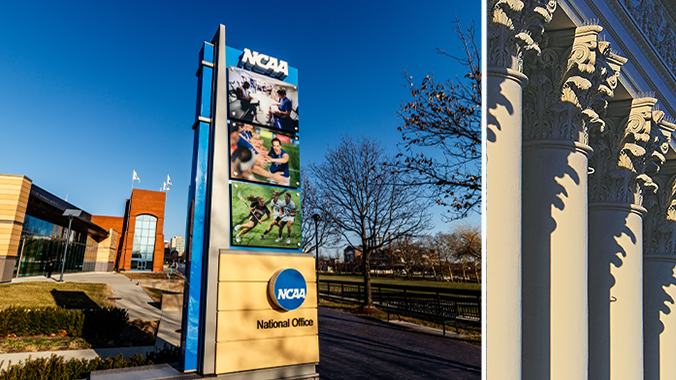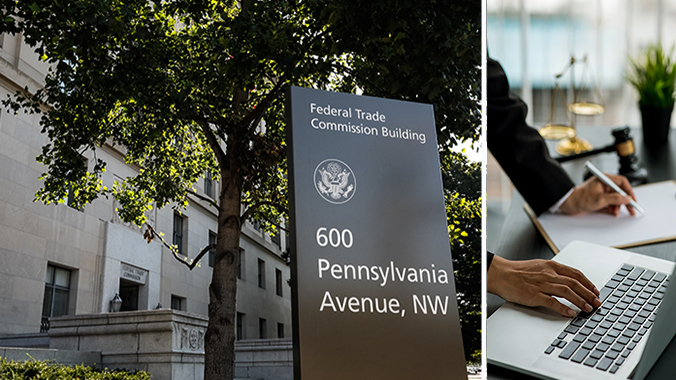60 Years of the Civil Rights Act (Presented by the Federal Bar Association Professional Development Committee & Civil Rights Law Section)
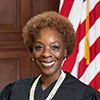
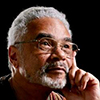


1 hour CLE
Tuition: $95.00
Get this course, plus over 1,000+ of live webinars.
Learn More
All-Access Pass
Free access to all CLE programs w/active subscription. Annual subscription only $395/yr.
Training 5 or more people?
Sign-up for a law firm subscription plan and each attorney in the firm receives free access to all CLE Programs
Program Summary
This panel of civil rights experts will discuss the 60 years of history, influence, and impact of the Civil Rights Act of 1964. Join us as we celebrate this monumental anniversary with the insights of legal minds who have been a party to its story along the way!
Presented by the Professional Development Committee, and Civil Rights Law Section
Key topics to be discussed:
- Background and history that built up to the Act’s passing
- Legislation/passing of the Act
- Enforcement of the Act/Litigation surrounding the act over 60 years
- How the Act has influenced the practice of law: its legal significance and practice
- What, if anything, we can expect from the Act going forward
![]() Closed-captioning available
Closed-captioning available
Speakers
 The Honorable Nancy G. Abudu, Judge | U.S. Court of Appeals for the Eleventh Circuit
The Honorable Nancy G. Abudu, Judge | U.S. Court of Appeals for the Eleventh Circuit
Nancy G. Abudu was confirmed as a Circuit Judge for the U.S. Court of Appeals for the Eleventh Circuit in May 2023. She is based in Atlanta, Georgia.
Prior to her appointment, Abudu was a lawyer with the Southern Poverty Law Center (SPLC) where she served as the organization’s first-ever Deputy Legal Director for Voting Rights, and then SPLC’s first Director of Strategic Litigation. Her responsibilities included overseeing all the organization’s legal programmatic work which, in addition to voting rights, included immigrants’ rights, criminal justice reform, children’s rights, LGBTQ rights, and special litigation related to hate groups.
Abudu also spent almost 14 years with the American Civil Liberties Union, first as a voting rights attorney with the national office and then as the legal director for the Florida affiliate. Her experience also includes being an associate with Skadden, Arps, Slate, Meagher & Flom LLP in the firm’s New York office and working in the Eleventh Circuit’s staff attorney office early on in her career.
Her civic activities have included serving on the Standing Committee on Election Law for the American Bar Association, the ABA’s Taskforce on Building Public Trust in the American Justice System, and the Advisory Committee for the National Voting Rights Institute, as well as co- chairing the Georgia Association of Black Women Attorneys’ political participation committee and serving on the board of the Georgia Citizen’s Coalition on Hunger.
 Dr. Clayborne Carson, Professor of History, emeritus | Stanford University
Dr. Clayborne Carson, Professor of History, emeritus | Stanford University
Dr. Clayborne Carson, the Martin Luther King, Jr., Centennial Professor of History, emeritus, at Stanford University, has devoted his professional life to the study of Martin Luther King, Jr., and the human rights movements inspired by King, Mohandas K. Gandhi, and other visionaries.
His award-winning first book, In Struggle: SNCC and the Black Awakening of the 1960s, was published in 1981 and remains the definitive study of the courageous activists and organizers who challenged the strongholds of segregation. In 1985, Mrs. Coretta Scott King chose Dr. Carson to edit and publish a definitive, multi-volume edition of her late husband’s speeches, sermons, correspondence, publications, and unpublished writings. In addition to publishing numerous other books and scholarly articles, Carson has also reached broader audiences as a senior advisor to the Eyes on the Prize series and his contributions to more than two dozen subsequent documentaries. After launching the online Liberation Curriculum for K-12 students, Carson founded Stanford’s Martin Luther King, Jr., Research and Education Institute in 2005 to disseminate King- related educational resources to a global audience. After retiring as the King Institute’s Director, Carson has continued his online educational efforts by establishing The World House Project to collaborate with other human rights advocates to realize King’s vision of a global community in which all people can “learn somehow to live with each other in peace.”
 Senator Doug Jones, Counsel | ArentFox Schiff
Senator Doug Jones, Counsel | ArentFox Schiff
In 2017, Doug Jones shocked the political establishment by winning a special election to fill a U.S. Senate seat in Alabama – the first Democrat to do so in the state in 25 years. As a member of the Banking and Housing Committee, the Health, Education, Labor, and Pensions (HELP) Committee, the Armed Services Committee, the Homeland Security and Governmental Affairs Committee, and the Committee on Aging, he quickly built a reputation as a well-regarded and effective legislator. He passed more than two dozen bipartisan bills into law in just three years, including legislation to end the military widow’s tax, provide permanent funding for historically black colleges and universities (HBCUs), shed light on Civil Rights-era cold cases, and expand access to broadband in rural communities. He was also one of the principal architects of the anti-money laundering legislation passed by Congress as part of the National Defense Authorization Act of 2020.
Senator Jones began his career in 1979 as staff counsel to the U.S. Senate Judiciary Committee for Senator Howell Heflin (D-AL). Following his stint in Washington, Senator Jones served as an Assistant United States Attorney from 1980-1984. He left government service in 1984 and was in the private practice of law in Birmingham, Alabama, until President Bill Clinton nominated him to the position of United States Attorney for the Northern District of Alabama. His nomination was confirmed by the Senate in November 1997 and he served as U.S. Attorney until June 2001. It was while serving in that position that Senator Jones successfully prosecuted two of the four men responsible for the 1963 bombing of the 16th Street Baptist Church that killed four young girls, finally bringing full justice and closure nearly 40 years after the attack. Along with taking on the Ku Klux Klan, he indicted domestic terrorist Eric Rudolph and prosecuted other criminals who sought to use fear, hatred, and violence to inhibit the rights of others.
Jones continued his push for civil rights while in the Senate. He was the principal author of the Civil Rights Cold Case Commission Act which was signed into law and now fully operational. He was also a co-sponsor of the John R. Lewis Voting Rights Advancement Act, the Equality Act, the Fair Pay Act and the George Floyd Justice in Policing Act. Harkening back to the civil rights history in Birmingham, Senator Jones started the annual tradition of having a bipartisan group of Senators read Dr. King’s “Letter from a Birmingham Jail” on floor of the United States Senate. He has received numerous awards and honors for his work on civil rights.
Between his time as U.S. Attorney and his election to the Senate, Senator Jones was in the private practice of law, handling white collar, False Claims Act, and security fraud class actions. He has represented multinational corporations, small businesses, and individuals in high-stakes civil and criminal litigation.
Senator Jones is admitted to, and practices law in, Alabama. His office address is 2130 Highland Ave., 3rd Floor, Birmingham, AL 35205.
 Moderator, Don Quinn, Managing Partner | Quinn Patton
Moderator, Don Quinn, Managing Partner | Quinn Patton
Don is a graduate of Harvard University, the University of Missouri, and Washington State University. He has 20 years of business leadership experience, is a combat veteran and 32nd Degree Mason. His favorite part of being a lawyer is going to trial and representing clients in cases against some of the most prominent organizations in the world.
Agenda
I. Historical context and background for the Act | 2:00pm – 2:20pm
II. Conversation concerning the legislative process and litigation of the Act | 2:20pm – 2:35pm
III. Act’s legal implications, decisions, and influence over the years | 2:35pm – 2:55pm
IV. Three areas of history, legislation, and litigation/legal impact | 2:55pm – 3:00pm
V. Q&A * Please be advised that this 15-minute session does not qualify for CLE credits * | 3:00pm – 3:15pm
Credits
Alaska
Approved for CLE Credits
1 General
Alabama
Pending CLE Approval
1 General
Arkansas
Approved for CLE Credits
1 General
Arizona
Approved for CLE Credits
1 General
California
Approved for CLE Credits
1 General
Colorado
Pending CLE Approval
1 General
Connecticut
Approved for CLE Credits
1 General
District of Columbia
No MCLE Required
1 General Hour
Delaware
Pending CLE Approval
1 General
Florida
Reciprocity
1 General Hours
Georgia
Approved for CLE Credits
1 General
Hawaii
Approved for CLE Credits
1 General
Iowa
Pending CLE Approval
1 General
Idaho
Pending CLE Approval
1 General
Illinois
Approved for Self-Study Credits
1 General
Indiana
Approved For On-Demand Credits
1 General
Kansas
Pending CLE Approval
1 Substantive
Kentucky
Pending CLE Approval
1 General
Louisiana
Pending CLE Approval
1 General
Massachusetts
No MCLE Required
1 General Hour
Maryland
No MCLE Required
1 General Hour
Maine
Pending CLE Approval
1 General
Michigan
No MCLE Required
1 General Hour
Minnesota
Approved for Self-Study Credits
1 General
Missouri
Approved for Self-Study Credits
1.2 General
Mississippi
Pending CLE Approval
1 General
Montana
Pending CLE Approval
1 General
North Carolina
Pending CLE Approval
1 General
North Dakota
Approved for CLE Credits
1 General
Nebraska
Pending CLE Approval
1 General
New Hampshire
Approved for CLE Credits
60 General minutes
New Jersey
Approved for CLE Credits
1.2 General
New Mexico
Approved for Self-Study Credits
1 General
Nevada
Approved for Self-Study Credits
1 General
New York
Approved for CLE Credits
1.2 General
Ohio
Pending CLE Approval
1 General
Oklahoma
Approved for Self-Study Credits
1 General
Oregon
Pending CLE Approval
1 General
Pennsylvania
Approved for Self-Study Credits
1 General
Rhode Island
Pending CLE Approval
1 General
South Carolina
Pending CLE Approval
1 General
South Dakota
No MCLE Required
1 General Hour
Tennessee
Approved for Self-Study Credits
1 General
Texas
Approved for CLE Credits
1 General
Utah
Pending CLE Approval
1 General
Virginia
Not Eligible
1 General Hour Hours
Vermont
Approved for CLE Credits
1 General
Washington
Approved via Attorney Submission
1 Law and Legal Hours
Wisconsin
Approved for Self-Study Credits
1 General
West Virginia
Pending CLE Approval
1 General
Wyoming
Pending CLE Approval
1 General
#1 CLE Access Program
- Over 1,000 Live CLE Webinars each year
- All CLE webinars broadcasted in last 12 months
- Programs covering over 35 practice areas
- Hot topics & changes in the law
- All formats: Live, Replay, and On-demand
- Accreditation in every state
Access every CLE webinar,
every format, all year long!
myLawCLE All-Access Pass
only $395 yearly
Register Now
#1 CLE Access Program
- Over 1,000 Live CLE Webinars each year
- All CLE webinars broadcasted in last 12 months
- Programs covering over 35 practice areas
- Hot topics & changes in the law
- All formats: Live, Replay, and On-demand
- Accreditation in every state
Access every CLE webinar,
every format, all year long!
myLawCLE All-Access Pass
only $395 yearly
More CLE Webinars
Trending CLE Webinars







Upcoming CLE Webinars











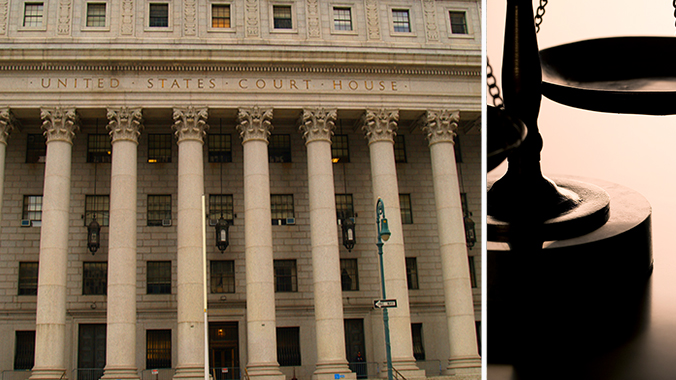














![The Litigator’s Guide to Evidentiary Objections: When to hold them and how to avoid mistakes (Including 1hr of Ethics) [2024 Edition]](https://mylawcle.com/wp-content/uploads/2024/03/The-Litigators-Guide-to-Evidentiary-Objections-When-to-hold-them-and-how-to-avoid-mistakes-Including-1hr-of-Ethics-2024-Edition_myLawCLE.jpg)







